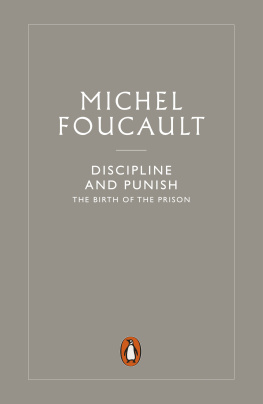All rights reserved. No part of this publication may be reproduced or transmitted in any form or by any means, electronic or
mechanical, including photocopying, recording, or any other information storage and retrieval system, without the written permission of ONE FOR ISRAEL Ministry. Unless otherwise indicated, all Bible quotations are from the ESV Bible (The Holy Bible, English Standard Version ), copyright 2001 by Crossway, a publishing ministry of Good News Publishers. Used by permission. All rights reserved.
Introduction
A frequent objection by non-believer to faith in Jesus, goes something like this:
"So, you guys believe that God was so angry, and for Him not to punish and kill you, because He loves you so much, He had to torture, punish and kill His own Son? It makes no sense to me! Is He a bully? sounds like an abusive father! What kind of love is this?!"
So, whos wrath was poured over Jesus Gods or mens?
I believe the answer to this question, which to some might sound secondary, has a direct effect on how we see and understand the character of God.
OPTION #1: GODS WRATH KILLED JESUS
God, wanting mankind to reject, torture and murder Jesus. In addition, He poured His wrath on Him which ultimately, making God Himself the executer:
Just as Abraham lifted the knife over the chest of his son Isaac, but then spared his son because there was a ram in the thicket, so God the Father lifted his knife over the chest of his own Son, Jesus but did not spare him. (Pastor John Piper)
If God wanted Jesus to be rejected, tortured and murdered for His wrath to be satisfied, it makes God ultimately the one pulling the trigger, and the cause for the suffering and death of Jesus. This view, in my opinion, falsely portrays the Father as an angry, harsh, vengeful God. (While Jesus described Him as a patient, graceful, loving Father Who seeks our good.) This view of God creates in us not only fear and a sense of alienation, but also generates legalism.
OPTION # : GOD ALLOWED MEN TO KILL JESUS
God, being all knowing, merely allowed and took advantage of men's rejection, torture and killing of Jesus, considering His death as a sacrificial atonement:
" God stood aside and allowed Jesus to be crucified. God laid down the power to intervene ."
God not only did not pour His wrath of Jesus, but stood by without rescuing Him, allowing humanity to execute their evil scheme without intervening. This approach paints the Father as a merciful God who, with much grief and sorrow, allowed His son to enter a rebellious and corrupt world, in order to die by it, and for it.
In this short book, I am interested to make the following case:
1. God did NOT kill Jesus by pouring his wrath on Him.
2. God allowed the killing of Jesus by men.
3. God considered Jesus death to be the sacrificial atonement.
4. Jesus voluntarily cooperated from His own will.
Background
History of Atonement and Satisfaction
Before diving in, some background.
What might be the earliest known view of atonement is the Ransom Theory , which was developed by Origen (185-254AD). This theory was wide spread until it was challenged by Anselms Satisfaction Theory in 1098. In Anselms day, most of Europe had become a feudal society. Meaning, the common folk served a knight who was charged with protecting the area in which they lived. Socially, great distance existed between knights and the common people. An offense against the honor of a knight was considered very serious, requiring the satisfaction of heavy punishment. Knights could not simply forgive an offense, because that would imply the offense didnt matter, in turn causing the people to be less fearful of the knighthood. Positioned above the knights was the King. Offense against a King was a very serious thing and demanded an even more severe response.
Refusing to accept the Ransom Theory, Anselm came up with the theory of Satisfaction in order to explain what happened at the cross. Anselms Satisfaction Theory was most likely affected by the feudal culture in which he lived. For Anselm, sin was an offense against Gods honor, and just as a King will not and could not ignore an offense against him, neither could God ignore our sins against Him. While these sins had offended Gods honor, the death of Jesus on the cross restored (satisfied) that honor. Through His suffering, Jesus regained the honor that was lost.
Hundreds of years after Anselm, Europe changed, and people were challenging the ideas of its previous society. A well-known expression is of course the Protestant Reformation generated by Luther, Calvin, and others. This brought about the development of a new theory of atonement called Penal Substitution .
Penal Substitutionary Atonement was based on Anselms Satisfaction Theory but with a significant upgrade: these reformers did not see the atonement as Jesus satisfying the honor of God in our place; rather Jesus satisfied the holiness and justice of God.
The bottom line is this because of our sins, we owe God our lives. Jesus then, gave His life instead, so we dont have to give ours.
Ever since, the theory continued to develop to a few different directions. One of which, is the idea was that Gods wrath developed because the greatness of man sin, and since He is holy and therefore cannot come near unholiness (of sin). And, since He is just and cannot justly ignore sin, He must then punish sin so to satisfy His wrath. So the Father poured out His wrath for our sin on Jesus. Therefore, Jesus paid the debt for our sin in satisfaction of Gods wrath. This is a good time to remember that not one of the Church fathers ever promoted this wrath poured over Jesus idea.
In their opening summary on penal substitutionary atonement, authors Steve Jeffery, Mike Ovey, and Andrew Sach of Pierced for our Transgressions , explain that:
The doctrine of penal substitution states that God gave himself in the person of his Son to suffer instead of us the death, punishment and curse due to fallen humanity as the penalty for sin. This understanding of the cross of Christ stands at the very heart of the gospel. There is a captivating beauty in the sacrificial love of a God who gave himself for his people. It is this that first draws many believers to the Lord Jesus Christ, and this that will draw us to him when he returns on the last day to vindicate his name and welcome his people into his eternal kingdom. That the Lord Jesus Christ died for us a shameful death, bearing our curse, enduring our pain, suffering the wrath of his own Father in our place has been the wellspring of the hope of countless Christians throughout the ages..
In my argument, I will assume Penal Substitution to be true, while exploring the question that is begged to be asked in addition to Jesus dying in our place, did God also pour His wrath on Jesus, punishing Him and wanting mankind to reject, torture and murder the Messiah? or, did God merely allowed mankind to kill Jesus, considering His death as a sacrificial atonement for sin?
God did NOT kill Jesus by pouring his wrath on Him
I would first like to present the following deductive argument, making the case that it is not possible that God killed Jesus:
- God is incapable of desiring sin , yet may allow sin to take place.
- Rejection, torture and murder of the Messiah are sins.
- Jesus was rejected, tortured and murdered.












